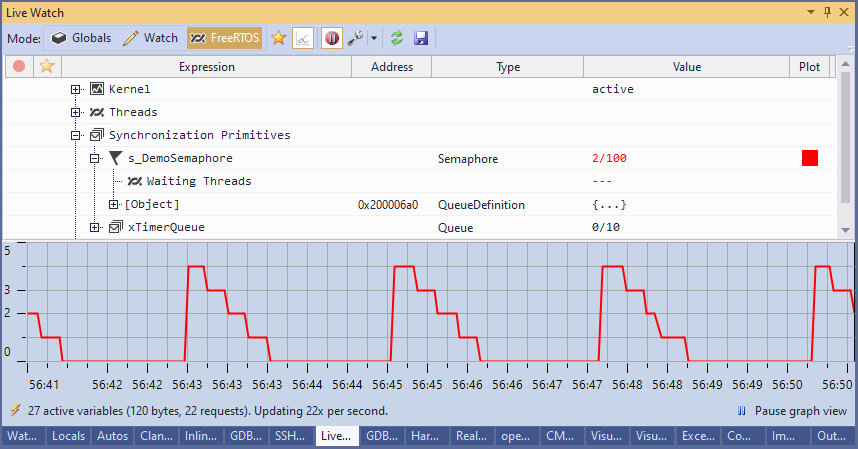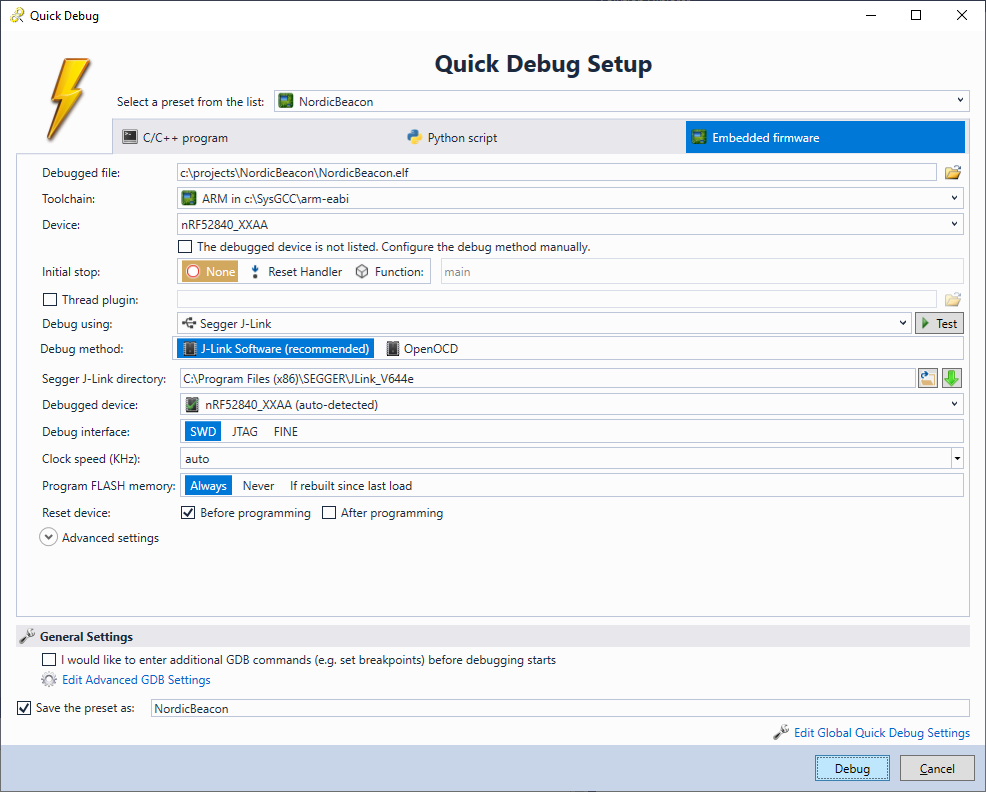As VisualGDB 5.5 is getting ready to become a stable release, we are happy to announce one of the last preview builds of the v5.5 branch. This version contains various improvements based on the feedback we received during the v5.5 development cycle and makes several common tasks easier.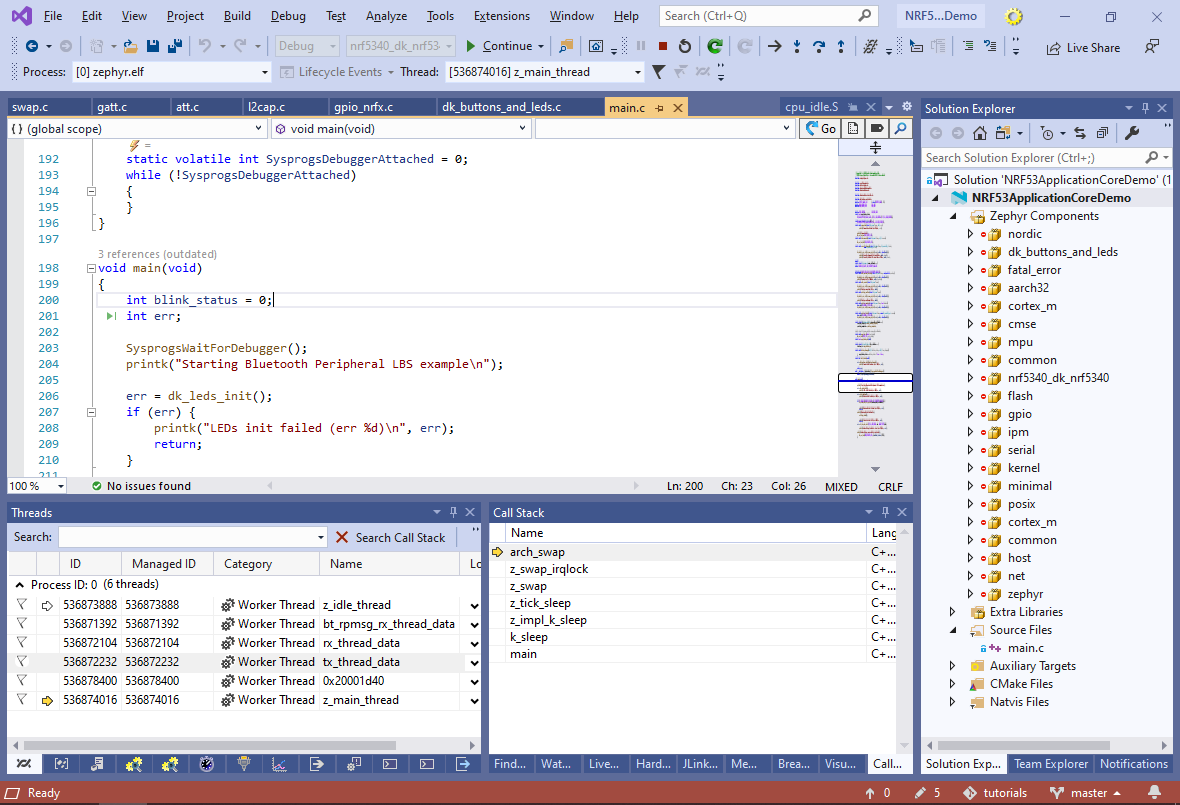 Continue reading Announcing VisualGDB 5.5 Preview 6
Continue reading Announcing VisualGDB 5.5 Preview 6
All posts by Ivan Shcherbakov
Announcing VisualGDB 5.5 Preview 5
We are excited to announce the release of VisualGDB 5.5 Preview 5. This version focuses on advanced non-intrusive debugging, introducing several features that let you inspect the state of your program without ever having to interrupt it. It also introduces support for ESP-IDF 4.1 and includes several other fixes and optimizations.
Analyzer2Go 2.1 is Out
Today we have released Analyzer2Go 2.1 – a handy tool that turns popular development boards into powerful logic analyzers. In this post I will give you an overview of the main changes in the new release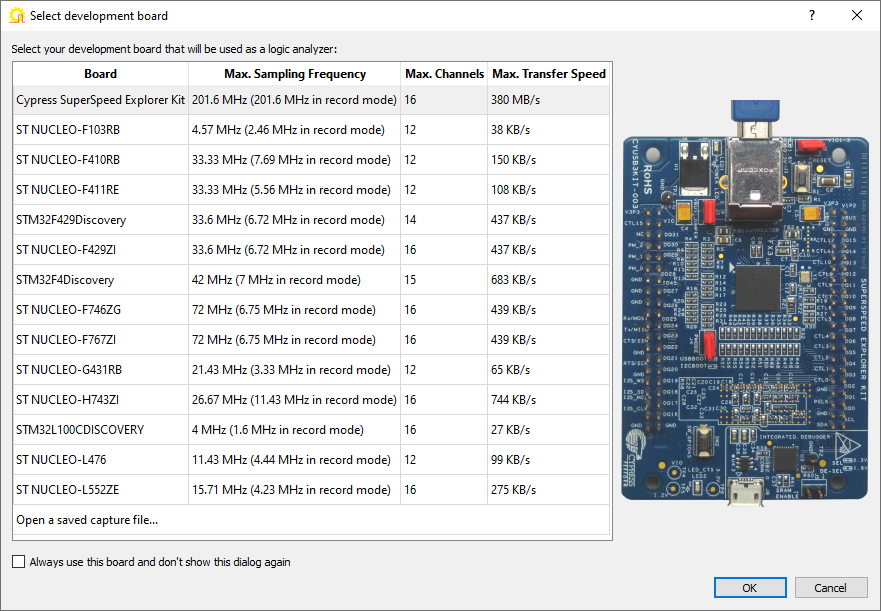 Continue reading Analyzer2Go 2.1 is Out
Continue reading Analyzer2Go 2.1 is Out
VisualGDB 5.5 Preview 4 is out
Announcing VisualGDB 5.5 Preview 3
Today we have released VisualGDB 5.5 Preview 3. This version features automatic repair of the most common C/C++ build errors, supports unit tests for IAR- an ESP-IDF-based projects, and introduces numerous other improvements. I will give you an overview of the main highlights below.
VisualGDB 5.5 Preview 2 is Out
Today we have released another preview of VisualGDB 5.5 introducing improvements to various project types. In this post I will give you an overview of the main highlights of the new build.
Announcing VisualGDB 5.5 Preview 1
Today we are proud to announce the first preview of VisualGDB 5.5. This version features gradual usability improvements across the board and introduces integration with even more tools and frameworks. In this post I will give you an overview of VisualGDB’s highlights.
Continue reading Announcing VisualGDB 5.5 Preview 1
Announcing STM32MP1 support in VisualGDB
Today we are proud to announce that VisualGDB now fully supports the STM32MP1 device family. This includes:
- A ready-to-use Windows cross-toolchain that allows building Linux applications for STM32MP1 without requiring a separate Linux VM. It is fully integrated with VisualGDB and allows creating and debugging projects with a few clicks.
- A prebuilt Linux-to-Linux cross-toolchain and a set of SD card images based on the official OpenSTLinux distro.
- A GUI wrapper for the ST-Link programmer that simplifies uploading of the STM32MP1 SD card images without requiring a Linux VM.
- A Windows build of the STM32MP1 fork of OpenOCD that is fully integrated into VisualGDB and lets you debug STM32MP1 devices in both production and engineering modes.
- A BSP package with numerous examples from ST that allows quickly exploring various STM32MP1 examples from Visual Studio.
If you are looking for the easiest way to get started with STM32MP1 development, simply download VisualGDB 5.4R11 and use either the Linux or Embedded project wizard to get a working project in seconds.
Update: If you are new to STM32MP1, check out a detailed tutorial on building the OpenSTLinux distro and a compatible SDK from scratch.
Stay tuned! We are working on detailed tutorials showing everything you need to know to get the best out of your STM32MP1 device. Follow us on Twitter to be notified once we publish them.
Announcing VisualKernel 3.1
Today we are proud to announce the release of VisualKernel 3.1. This release introduces support for the latest Linux kernels and popular distros and focuses on improving code navigation for the huge Linux Kernel code base. I will give you a quick overview of the highlights of the new features below: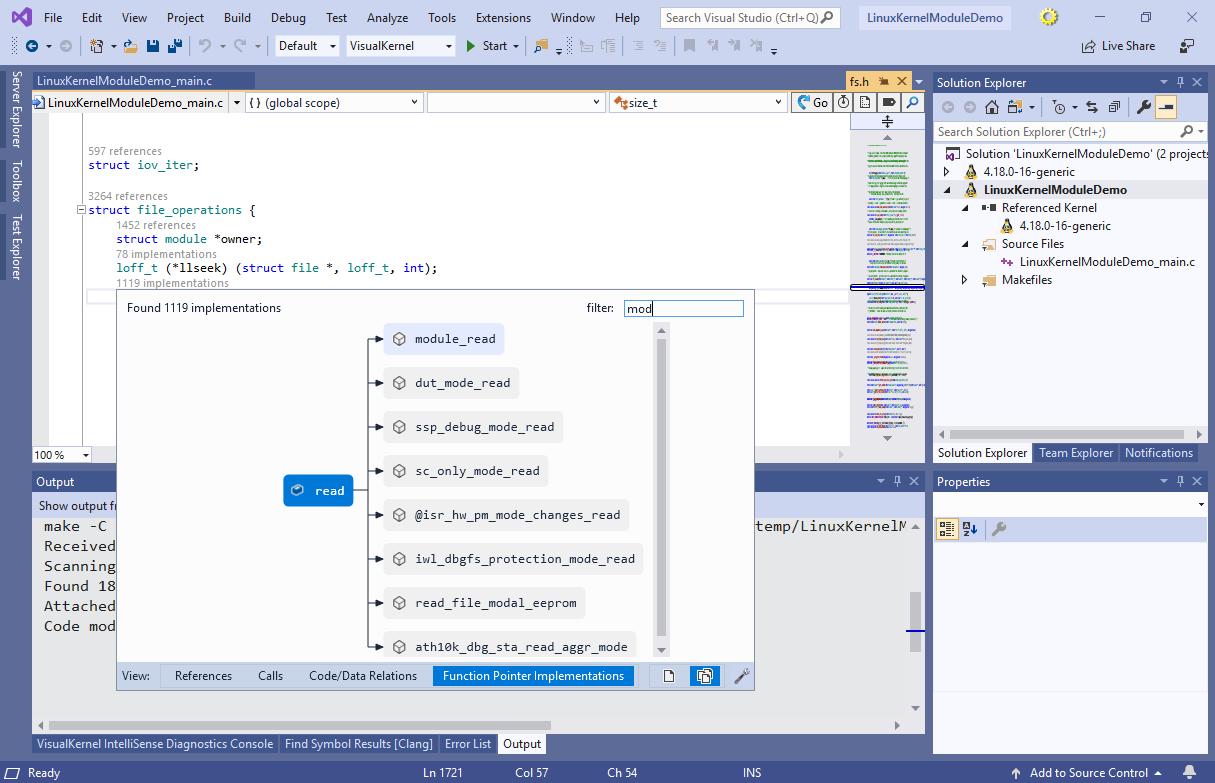 Continue reading Announcing VisualKernel 3.1
Continue reading Announcing VisualKernel 3.1
Announcing VisualGDB 5.4R3
Today we are proud to announce the release of VisualGDB 5.4R3. This is a maintenance release that focuses on gradually improving the VisualGDB experience across many supported project types and scenarios and in this post I will give you an overview of this version’s highlights.
